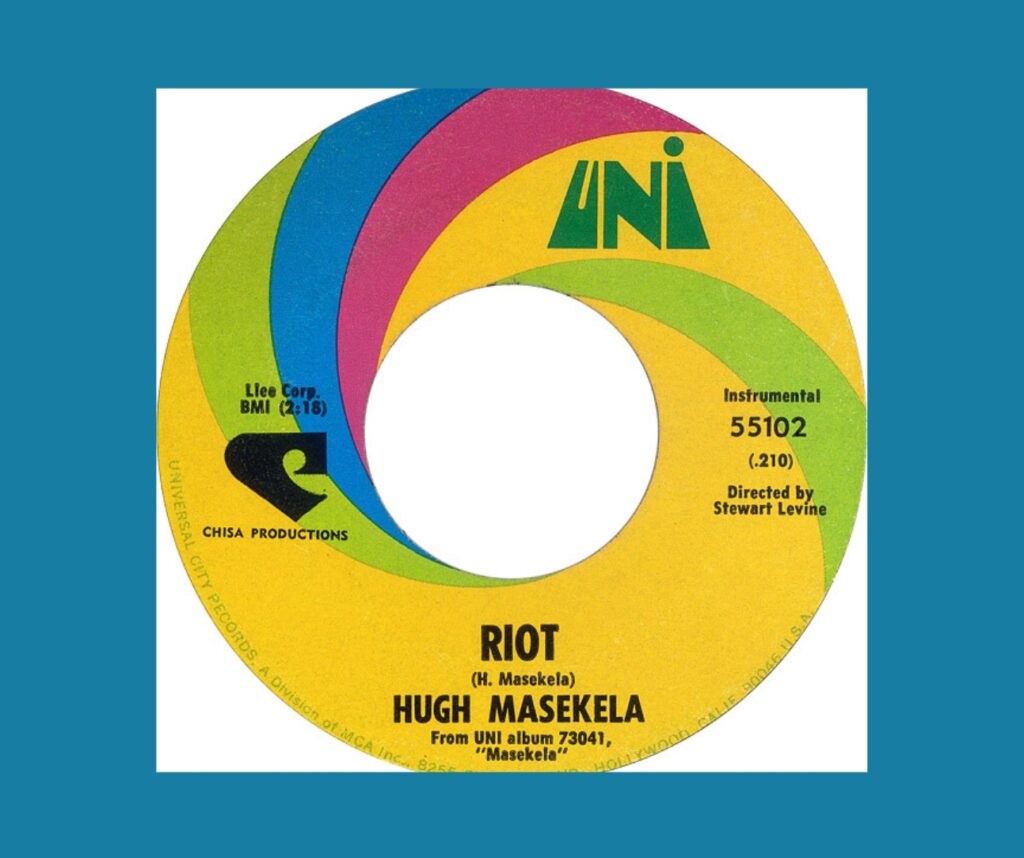Song: Riot
Artist: Hugh Masekela
Album: Best Of/20th Century (2006)
Click to listen on your preferred platform:
Many of you may be familiar with Earl Sweatshirt’s Riot!, but you might not know that the instrumentals are a sample of a famous song of the same name by South African musician Hugh Masekela.
Hugh Masekela (1939-2018) was a trumpeter, composer, and anti-apartheid activist whose life and music were deeply intertwined. Born in Witbank, South Africa, he was exposed to various musical styles from a young age, including traditional African rhythms and jazz. However, it was his experiences growing up in a segregated South Africa that would profoundly influence his music and activism.
Throughout his career, Masekela’s music served as a powerful tool for social commentary and political protest. He composed songs that vividly depicted the struggles and injustices faced by black South Africans under apartheid. His song “Soweto Blues,” co-written with his former wife Miriam Makeba, mourned the Soweto Uprising of 1976 and became an anthem for the anti-apartheid movement.
In addition to his musical activism, Masekela used his platform to raise awareness about the apartheid regime. He collaborated with fellow activists and artists, participating in the “Graceland” album and tour with Paul Simon, which helped expose South African music to a global audience while shining a spotlight on apartheid’s atrocities.
One of Hugh Masekela’s most powerful and poignant songs, “Riot,” was released in 1969, during a period of intense social and political unrest in South Africa. The song captured the turbulent atmosphere of the time and conveyed the urgency for change. “Riot” became an anthem for those protesting against apartheid, and its haunting melody and lyrics vividly portrayed the struggles of black South Africans fighting for their rights.





